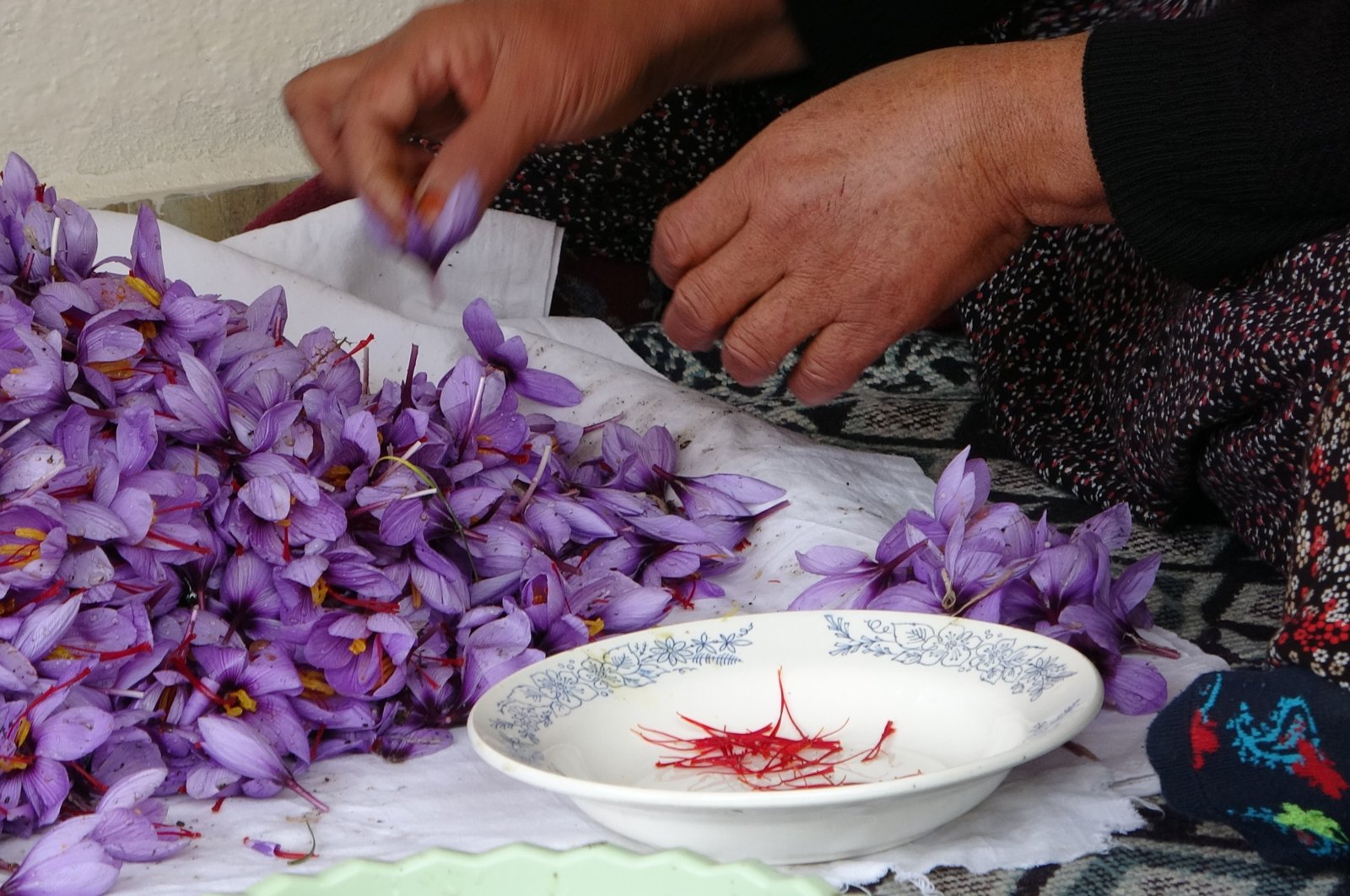In November 2020, for the first time in Qatar, a local farm started harvesting saffron.
On Monday, Iran secured a $300 million deal with Qatar to supply saffron to the Gulf country in what has been described as the world’s largest ever saffron export deal.
The recently inked agreement, with an initial estimated worth of $300 million, will see approximately 200 tons of Iranian saffron shipped to Qatar.
The deal was signed during a meeting between Iran’s ambassador to Doha, Hamidreza Dehghani, and Qatar’s minister of finance, Ali bin Ahmed Al Kuwari.
According to the agreement, Qatar should get its initial shipment of saffron on 1st October.
Iran, as the largest producer and exporter of saffron, produces 587 million dollars worth of the spice annually. In 2020, the Islamic Republic exported an estimated $108 million’s worth, ultimately securing it as the first largest exporter of saffron in the world.
Exports, however, have depleted in recent years, in Europe particularly, due to crippling United States sanctions.
Large portions of Iranian saffron will potentially take off from Afghanistan to Doha, where then relevant businesses can “re-export the spice to customers in the West,” reports state.
This comes amid expanding economic and political ties between Doha and Tehran, particularly in the post 2017 blockade context.
An illegal land, air and sea blockade was imposed on Qatar by Saudi Arabia, the United Arab Emirates, Bahrain and Egypt in 2017 over accusations that the Gulf state supports terrorism.
The former blockading quartet at the time said action taken against Doha was due to its ‘close’ relations with Iran and Turkey, both of which have had their own political rivalries with Saudi Arabia and the UAE.
During the blockade, Iran opened its airspace to Qatari flights, following airspace closures, on top of sending multiple planeloads of food to the Gulf country.
Separately, economic ties between Qatar and Iran see themselves further enhanced as the Gulf state issued a permit in June for Tehran to launch a major trade centre in its capital.
The trade centre is mean to provide opportunities for the country’s traders and support private businesses in the Gulf nation.
During a meeting between Minister of Commerce and Industry Sheikh Mohammed Al Thani and Iranian Energy Minister Ali-Akbar Mehrabian in June, the Qatari minister expressed that the current geopolitical shifts are “pushing” the two countries “more than ever towards concerted efforts to expand economic, trade, and investment cooperation to serve their common interests based on their strong and well-established relations,” Qatar News Agency reported.
The level of trade exchange between Tehran and Doha witnessed a growth of about 34 percent in 2021, which is a testament to the robust developments the two have been experiencing.
As for investments, the Qatari minister further explained that the Iranian private sector leads an important role in backing the process of development and construction in Qatar, pointing out that the number of active Iranian companies operating in crucial economic fields within the country has reached to approximately 811.
Separately, Deputy Foreign Minister of Economic Diplomacy Mehdi Safari, noted in June that after the Iranian President Ebrahim Raisi’s visit to Doha, new horizons have appeared with regards to increasing the trade volume between Tehran and the Arab nation.
During President Raisi’s visit to Qatar in late February, the two nations witnessed the signing of a total of 14 different agreements and covered different sectors of cooperation. These include trade, sea and air transportation, visa cancellation, standard, electricity, culture and education.
“When economic relations are established between the two countries, political and security relations are stable. If economic relations are weak, political and security relations are torn apart by a breeze,” Safari said, as quoted by Tehran Times.
The Iranian Envoy to Doha Hamidreza Dehghani Poudeh expressed that the country’s foreign ministry will aid in facilitating the business connections between the two Gulf nations.







